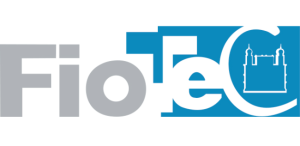Symposia
Home // Symposia
UK Biobank: democratising health data for epidemiological research globally
Time: 12h00 - 13h00 | Venue: Ballroom West
This symposium highlighted the UK Biobank, a prospective cohort study of 500,000 participants, emphasising its extensive genomic, lifestyle, and environmental data alongside long-term health outcome tracking. The session showcased the broad accessibility of this global resource, which supports research into disease determinants, risk prediction, and early detection. Presentations featured recent enhancements, case studies, and scientific discoveries enabled by the UK Biobank, as well as the cloud-based UK Biobank Research Analysis Platform (UKBRAP) that facilitates collaboration across disciplines. The session also introduced initiatives like the UKBRAP credits program, which provides funding to early-career and low- to middle-income country researchers to support their research projects.

Trends and transitions in non-communicable disease risk factors: data, analytics and implications
Time: 12h00 - 13h00 | Venue: Meeting Block 1.41-1.44
This session explored global and regional patterns in physiological risk factors—such as obesity, high blood pressure, and non-optimal lipid levels—that contribute to the development of non-communicable diseases (NCDs) like diabetes, cardiovascular diseases, and certain cancers. By analysing population-based data, the session uncovered both regional similarities and differences in these risk factors and how they have evolved over recent decades. Presentations focused on global trends, followed by regional insights, which culminated in a panel discussion to identify key lessons for prevention strategies and health system interventions across different regions.
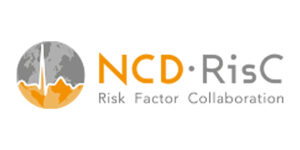
Understanding the Grading of Recommendations Assessment, Development and Evaluation [GRADE] approach to evidence synthesis and guideline development
Time: 12h00 - 13h00 | Venue: Meeting Block 1.61-1.64
This introductory lecture was aimed at clinicians and epidemiologists who wanted to expand their understanding of guidelines development and of GRADE specifically. By the end of the session, participants were able to:
- Gain up-to-date knowledge of the GRADE approach and its software tool, GRADEPro
- Summarise and interpret the results of a GRADE Evidence Profile
- Carry out rating evidence using the GRADE Evidence Profile
- Apply GRADE-recommended language for reporting the results of a Evidence Profile
- Summarise how the GRADE Evidence Profile informs the GRADE Evidence-to-decision-making framework for guidelines development
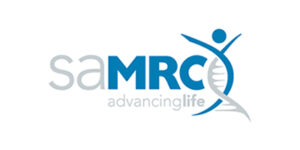
How Field Epidemiology Training Programmes are integrating noncommunicable diseases
Time: 16h30 - 18h30 | Venue: Ballroom West
This session addressed the global health threat posed by noncommunicable diseases (NCDs), which cause over 43 million deaths annually and place a significant burden on health systems and economies, especially in low- and middle-income countries. The session highlighted the importance of equipping Field Epidemiology Training Program (FETP) trainees with NCD epidemiology and surveillance skills to generate critical evidence and advocate for stronger responses. Presentations showcased outcomes from specialised NCD-focused FETP training programs in China, Ethiopia, India, and Thailand, funded by the CDC Foundation and partners. Attendees learnt about successful practices, challenges, and strategies for integrating NCD skills into FETPs, with a focus on capacity building and health equity. Dr Carl Reddy facilitated a discussion on enhancing NCD training in FETPs to improve global health outcomes.
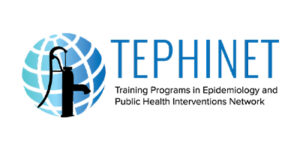
The ENABLE Lassa research programme: addressing key epidemiology gaps for Lassa fever vaccine development
Time: 16h30 - 18h30 | Venue: Meeting Block 2.44-2.46
The session focused on the Coalition for Epidemic Preparedness Innovations (CEPI) Enable Lassa Research Programme, which was initiated to address knowledge gaps in Lassa fever (LF) incidence and inform late-stage Lassa virus vaccine trials. The programme's Enable 1.0 phase, conducted across five West African countries, successfully recruited and monitored over 23,000 participants, providing crucial data for future vaccine trials. The symposium presented the achievements and challenges of the Enable 1.0 study, discussed the lessons learned, and outlined the objectives of the ongoing Enable 1.5 extension. Participants gained insights into the programme's role in building regional research collaborations, strengthening research capacities, and guiding vaccine development efforts.
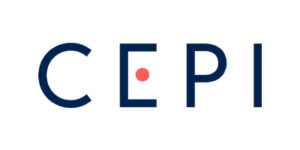
Rising Pressure: Innovations in childhood hypertension and blood pressure nomograms for Africa
Time: 18h30 - 20h30 | Venue: Ballroom East
This symposium highlighted the urgent need to develop Africa-specific blood pressure nomograms for children. The Childhood Hypertension Consortium of South Africa (CHCSA), a non-profit organisation, was established to address the lack of such tailored tools for African children and adolescents. The symposium provided updates on current projects, showcased new collaborations, and outlined plans to expand this initiative to other sub-Saharan African countries, particularly rural areas. Experts in paediatrics lead a roundtable discussion on the importance of tailored healthcare, early detection, and accurate diagnosis in addressing childhood hypertension. Additionally, the session explored the role of African-specific nomograms in informing research, guiding policy, and addressing noncommunicable diseases. In summary, this initiative represents a crucial step toward improving child health outcomes, advancing research, and combating noncommunicable diseases across Africa.

Climate change adaptation in Africa's health sector: lessons and best practices
Time: 18h30 - 20h30 | Venue: Ballroom West
The session organised by Mozambique's "Instituto Nacional de Saúde" focused on addressing the impacts of climate change, particularly on the health sector. Key outcomes included sharing best practices for preparation, response, and recovery from extreme climate events. The session disseminated global and national evidence on climate-induced disasters, highlighting Mozambique's African countries' vulnerabilities, such as increased frequency and intensity of cyclones and the resulting health challenges like cholera outbreaks and others. The discussion emphasised building resilience in the health sector through innovations and community engagement, promoting adaptation strategies. The session also sought to foster collaboration among stakeholders and provide policy recommendations to enhance climate resilience in Mozambique and similar vulnerable regions. This comprehensive approach aims to mitigate the adverse effects of climate change on public health and essential services.
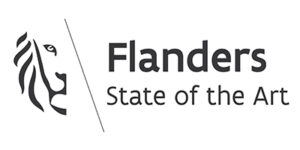

Oncology care through 'Food is Medicine' interventions
Time: 18h30 - 20h30 | Venue: Meeting Block 1.41-1.44
This symposium, co-organised by the World Cancer Research Fund (WCRF), explored the critical role of nutrition in the cancer continuum, highlighting its impact on global morbidity, mortality, and healthcare costs. The session presented the latest evidence on diet and nutrition in cancer prognosis, addressed common research biases, and examined tools for assessing nutrition in cancer patients and survivors, such as food insecurity and malnutrition risk. With a focus on the growing integration of food and nutrition into healthcare, the symposium discussed the design and effectiveness of “Food is Medicine” (FIM) interventions in improving cancer outcomes. Additionally, it explored opportunities to incorporate nutrition into oncology care and review policy frameworks aimed at reducing the global cancer burden through nutrition strategies. This session targeted a broad audience including epidemiologists, healthcare professionals, researchers, policymakers, and advocates interested in nutrition and FIM strategies to enhance cancer care.

Population-based epidemiology in the era of data science and routine health data
Time: 18h30 - 20h30 | Venue: Meeting Block 1.61-1.64
As digitised health, social and other linkable data are increasingly available in all settings, so too are population-representative observational epidemiological studies increasingly reliant on routine clinical and administrative data. This session explored the opportunities and challenges conducting population-wide analyses based on routine data, in different settings. A key focus of the symposium was on lower and middle income countries where there are more likely to be gaps in digitisation, but few alternatives to addressing critical clinical and social policy questions. Speakers who have been at the forefront of such analyses in Brazil and South Africa contrasted their experiences and perspectives with colleagues from the United Kingdom.
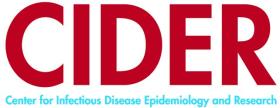
Birth defect surveillance in Africa
Time: 18h30 - 20h30 | Venue: Meeting Block 2.41-2.43
Congenital Disorders (or Birth Defects) are a significant cause of stillbirths and neonatal deaths in Africa. Surviving children are affected by disability with limited access to rehabilitation services and long term care. During this session we provided an overview of opportunities and challenges for birth defect surveillance in Africa. To address the research and care gaps for children affected by congenital disorders in the region, the sub-Saharan Congenital Anomaly Network (sSCAN) was developed. We heard from researchers from the sSCAN network about how such surveillance is conducted in settings with limited access to appropriate diagnostic technologies and expertise. Researchers in this meeting demonstrated how patient advocacy networks, pharmacovigilance-oriented pregnancy cohorts and hospital-based surveillance projects can be leveraged to help us understand the burden and potential causes of congenital anomalies in the region.

Re-imagining global health training: towards a more equitable inclusive and just approach to global health exchange
Time: 18h30 - 20h30 | Venue: Meeting Block 2.44-2.46
This symposium brought together international leaders presenting ways to decolonise global health training, focusing on the democratisation of international academic exchanges which not only enhanced the global health exchange, but critically engaged in meaningful dialogue and tangible outcomes for the host institution.

The internet of things and cohort studies
Time: 12h00 - 13h00 | Venue: Ballroom West
The proposed symposium explored the intersection of traditional epidemiology with the opportunities and challenges presented by digital transformation. As cohort studies increasingly incorporate data from diverse sources such as wearable devices, mobile apps, and smart appliances, the symposium addressed the advancements in exposure assessment technologies, including tracking systems and environmental sensors. While these innovations offer potential for richer data and insights, they also introduce complexities in data storage and metric development. The use of artificial intelligence (AI) in descriptive epidemiology and predictive modeling is emerging, yet its application in causal inference remains limited. The discussion covered current big data management strategies, the integration of AI into causal inference methods, and the ethical and legal challenges posed by rapid technological advancements. Additionally, the symposium explored the implications for epidemiological training and the need for new collaborative partnerships to support future cohort studies in this evolving digital landscape.
The dictionary of epidemiology: review and discussion
Time: 12h00 - 13h00 | Venue: Meeting Block 1.41-1.44
The new, 7th edition of the dictionary of epidemiology is set to be released in 2025. This was the final opportunity to review the new entries, provide suggestions and engage in discussions - with the editor, Miquel Porta, in attendance. All were welcome to join and participate.
Bridging the gap: the epidemiology and strategic implementation of pre-exposure prophylaxis (PrEP) in HIV prevention
Time: 12h00 - 13h00 | Venue: Meeting Block 1.61-1.64
This session was a panel discussion among 3-4 lead experts in epidemiology and implementation of HIV pre-exposure prophylaxis, oral, injectable and vaginal rings. The panel presented their methods and discussed how best to measure PrEP use, effective PrEP use (during periods of risk), self-reported vs. objective PrEP outcomes and HIV incidence in PrEP studies and implementation. The panel discussed and provided recommendations on how to reduce bias in PrEP data collection and outcomes and methods for PrEP measurement in different populations including adolescent girls and young women, pregnant and lactating people, and men who have sex with men.



Reporting comparative effectiveness studies using the Target Trial Framework - the TARGET guidelines
Time: 13h30 - 15h30 | Venue: Meeting Block 2.44-2.46
This workshop explored approaches to improve the reporting of comparative effectiveness studies in epidemiology, focusing on the newly developed TARGET guideline. The session began with an introduction to reporting guidelines for observational studies, led by Prof Matthias Egger, who presented key lessons from 20 years of using the STROBE (Strengthening the Reporting of Observational Studies in Epidemiology) guideline. Prof Egger highlighted how these guidelines have shaped epidemiological research and common challenges researchers face when using observational data. Building on these insights, Prof Miguel Hernán introduced the Target Trial Framework, which addressed some of STROBE’s limitations in comparative effectiveness research. Prof Hernán discussed how the Target Trial approach helps align observational study design with principles from randomised controlled trials, providing a robust framework for causal inference. Finally, Prof Margarita Moreno-Betancur presented the TARGET guidelines, which were developed to further enhance the quality and transparency of reporting in studies that emulate a target trial. She outlined how the TARGET guideline offers clear recommendations for reporting, ensuring consistency and rigor when using observational data in comparative effectiveness research.

HIV and obesity: the global collision of infectious and non-communicable diseases
Time: 16h30 - 18h30 | Venue: Meeting Block 1.41-1.44
HIV and obesity are increasingly overlapping health challenges. HIV, a chronic infection, often leads to metabolic issues and body composition changes contributing to obesity. Conversely, obesity can worsen HIV-related health issues, increasing risks like cardiovascular disease and diabetes. This session explored the complex relationship between HIV and obesity, which focused on biological connections and cardiometabolic risks. It also examined how HIV care models can be adapted for better obesity management. Speakers shared insights on scaling obesity care within health systems, leveraging lessons from HIV program implementation and integration.


Scientific writing for publication
Time: 07h00 - 07h45 | Venue: Meeting Block 1.41-1.44
This session was designed to equip early-career African scientists with essential skills for scientific writing and navigating the publication process, particularly in high-impact journals. Participants learnt critical strategies for drafting robust manuscripts, selecting appropriate journals, and effectively responding to peer review comments. The session addressed common pitfalls that lead to manuscript rejection, offering insights on how to enhance the visibility and acceptance of African research in globally competitive journals. Through interactive and practical exercises, the workshop transformed participants' approaches to scientific publishing, fostering more successful and impactful dissemination of research from the African continent.
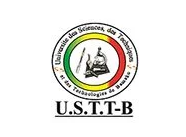

The International Journal of Epidemiology - an informal introduction
Time: 07h00 - 07h45 | Venue: Meeting Block 1.61-1.64
The International Journal of Epidemiology is the journal of the International Epidemiology Association. First published in 1972, the IJE aims to improve public health by reporting first-class research and commentary on all aspects of epidemiology. It strives for global reach and scope – see the editorial published in 2023. The session introduced members of the editorial team, described the goals of the journal, and outlined challenges presently facing the IJE (and similar journals). It was a chance for audience members to ask questions about the way the journal works, and to give their views on opportunities and future priorities.


Advances in HIV cohort methodologies
Time: 12h00 - 13h00 | Venue: Meeting Block 1.41-1.44
HIV remains among the top 10 causes of disability adjusted life years (DALYs) in sub-Saharan Africa, despite a nearly 75% reduction in HIV-related DALYs in the last 20 years. HIV observational cohort research has been critical to achieving this massive HIV-related DALY-reduction by informing HIV prevention and treatment guidelines and implementation, and remains vital for pursuing the goal of ending AIDS by 2030. Lessons learned from HIV observational cohort methodologies may be usefully applied to other health conditions and have provided a platform for rapid research in emerging infectious diseases such as COVID-19 and Mpox. This session provided an overview of some of the key advances in HIV observational cohort epidemiology including examples of pivoting to address emerging infectious diseases, and looked to the future at the promise and pitfalls of using artificial intelligence in observational cohort epidemiology.

Primordial prevention of cardiovascular disease and beyond in the African continent: opportunities and challenges
Time: 12h00 - 13h00 | Venue: Meeting Block 1.61-1.64
Explore the transformative potential of primordial prevention in addressing cardiovascular diseases and non-communicable diseases in Africa. This symposium addressed the gap in evidence and implementation strategies for achieving ideal cardiovascular health in low and middle-income countries. Critical questions included the choice of the best time windows in life for implementation, use of participation research and co-design processes to engage and empower the population in adopting healthy behaviours, and accounting for local contexts that vary substantially from one country to another.
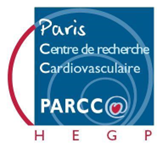


Beyond observational data: enhancing epidemiology analytics with cross-cutting disciplines
Time: 16h00 - 18h00 | Venue: Meeting Block 2.41-2.43
Our research team showcased diverse methodologies, from health economic costing and infectious disease modelling to behavioural economics and machine learning. Participants discovered how these approaches are shaping public health interventions and policy decisions in South Africa.

Nationwide routine data cohorts in Brazil: challenges and highlights
Time: 16h30 - 18h30 | Venue: Meeting Block 2.44-2.46
In this symposium, we presented the process of creating two large cohorts, covering all the Brazilian territory (8.5m km2), using routinely collected health and social data: a) the 100 Million Brazilian Cohort (N=131,697,800) and b) the CIDACS Birth Cohort (N=28,631,394 liveborn children and mothers). Challenges involved in data acquisition and governance, methodological ones; highlights of the results were presented. We started presenting the acquisition, management, and linkage of nationwide data. We then described the 100 Million Brazilian Cohort, initially developed to investigate the impact of social policies and social determinants on the health of the population across the whole of Brazil who apply for social benefits through the Unified Registry of Social Programs. The second data resource that we presented was the CIDACS Birth Cohort, created to investigate the impact of prenatal and early life events on health-related outcomes for infants, children, adolescents, and pregnant persons in the context of social inequalities. By the end, the participants were able to understand the strengths, weaknesses and challenges when using linked routine data for epidemiological research. Also, the importance of these data resources, their potential contributions to knowledge generation and informed policy development, and the future perspective involving routinely collected data.

